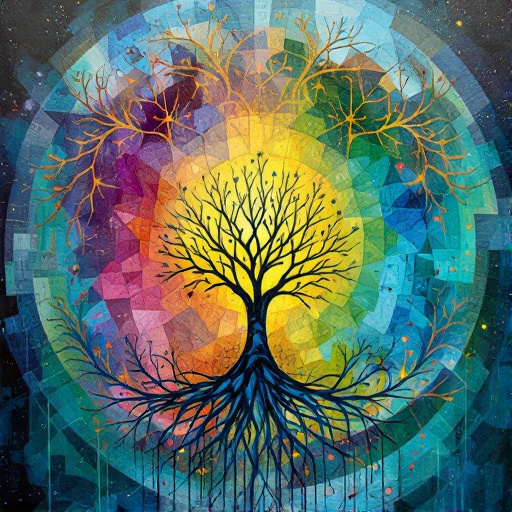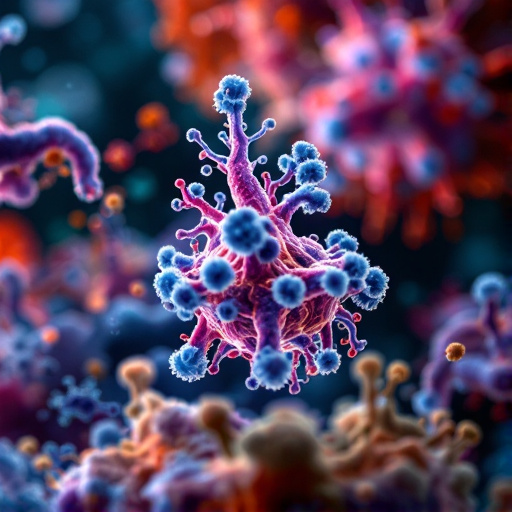Featured Articles
- Exploring the Untapped Potential of Gaming Communities in Cancer Support and Awareness
- Harnessing Sound Waves: Exploring Sonic Therapies as an Untapped Aid in Cancer Recovery Programs
- Rediscovering Nature: The Unexplored Healing Power of Indigenous Plants in Cancer Therapy
- The Hidden Role of AI: How Technology is Shaping Cancer Support Networks and Resources
- Top 7 Breakthrough Cancer Care Products Launched in the Last 5 Years: In-Depth Reviews & Rankings
Exploring the Untapped Potential of Gaming Communities in Cancer Support and Awareness
Exploring the Untapped Potential of Gaming Communities in Cancer Support and Awareness
Gaming communities have emerged as robust support systems, creating an often-overlooked foundation for cancer advocacy and awareness. By harnessing the passion and engagement of gamers, we can unlock powerful new avenues for spreading information, breaking stigmas, and building supportive networks.
Introduction: The Power of Play
Imagine this: you’re settling into your gaming chair, headset firmly in place, your fingers ready to conquer an online battleground. But instead of just a game, you find yourself part of a community marvelously engaged in discussions around cancer awareness, support, and fundraising. This is not just a figment of imagination—this is the intersection of gaming and cancer advocacy, and it holds incredible potential for changing lives.
The Gaming Demographic: A Whole New World
As of 2023, more than 3 billion people are estimated to play video games worldwide (Statista, 2023). That’s a staggering figure, showing that gaming is not just a pastime but a cultural phenomenon with diverse demographics. Within this legion of gamers, there exists a myriad of individuals affected by cancer, either personally or through friends and family. By engaging this audience, we tap into a resource that could amplify awareness and support efforts dramatically.
Case Study: A Game Transformed into a Lifesaving Adventure
In 2021, the popular multiplayer game "Among Us" launched a charity event for childhood cancer awareness, dubbed "Among Us for Kids." This effort brought together players from across the globe, who not only played but also raised over $50,000 in a single weekend. The community’s unity and responsiveness to the cause were profound, showing that gaming could rise to support crucial social issues while keeping the spirit of fun alive.
Breaking Stigmas Through Fun
Humor is essential in breaking down barriers, particularly surrounding sensitive subjects like cancer. Gaming, with its light-hearted engagement and camaraderie, offers an amazing platform to tackle heavy topics. For instance, during in-game banter, players could jokingly share personal experiences related to cancer—whether it be their aunt's quirky battle with skin cancer or their best friend's unexpected hair loss during chemotherapy. By normalizing these conversations in a relaxed environment, players foster a less intimidating atmosphere for discussing what can be serious and somber issues.
A Thriving Support Network
In any community, we often find a robust support system. Now, picture that dynamic in a gaming context. Many games have chat functions, forums, and social media groups where players bond over shared experiences. Using these platforms, gaming communities can organize awareness campaigns or fundraisers. Just recently, a group of Fortnite players collaborated to create a fundraiser for breast cancer research, raising nearly $100,000 in just one month. Their combined efforts demonstrated not just their love for the game, but also their commitment to a cause that touched many hearts.
The Role of Twitch and Streaming Platforms
Twitch and other streaming platforms have made significantly impactful strides in enabling charity streams. Streamers harness their influence to raise millions for cancer research and support organizations. For instance, the renowned streamer DrLupo raised over $900,000 for St. Jude Children’s Research Hospital during his 24-hour gaming marathon—events that encourage viewer donations while entertaining and interacting with an audience in real time. This synergy of entertainment and philanthropy illustrates how gaming can be an effective vehicle for awareness and healing.
Persisting Challenges
While the potential for gaming communities in cancer support and awareness is evident, challenges persist. Skeptics argue that video games can lead to isolation or promote unhealthy escape behaviors. However, what studies show is that gaming can serve as a dual-edged sword: it can isolate, but it can also connect. According to a study published in the American Journal of Preventive Medicine, socially engaging video games positively impact mental health, providing a much-needed community for those feeling alone in their struggles (American Journal of Preventive Medicine, 2022).
Inviting Younger Generations into Advocacy
One may wonder: how do we ensure that younger gamers are motivated to engage in cancer advocacy? Maybe it’s time to embrace the ridiculously catchy challenges and memes that proliferate social media! Imagine the impact of a viral challenge like the Ice Bucket Challenge, but instead, participants focus on awareness for different types of cancer. By using humor, creativity, and gaming culture, we can better capture the attention of younger audiences, inviting their active participation in these serious conversations. Becoming an advocate can feel like a jumping game level rather than an obligatory task.
The Science of Community Engagement
Engaged communities are essential in leveraging awareness into meaningful action. Research conducted by the Pew Research Center in 2022 highlighted that 72% of gamers enjoy participating in online communities focused on shared interests—such as gaming and, surprisingly, causes like cancer support! Gamers naturally thrive in teamwork and collective challenges, making it seamless to convert in-game victories into real-world awareness and fundraising campaigns. Combining passion for gaming with social causes results in a win-win scenario for all involved.
Educating Gamers: A Call to Action
Education is perhaps one of the most potent tools we can wield in the fight against cancer misinformation. An initiative titled "Play for a Purpose" rolled out an in-game tutorial about different types of cancer, symptoms, and resource locations where players can seek help or donate. The pitch was straightforward: "Level up your knowledge!" With 83% of players claiming they learned something new while gaming (Entertainment Software Association, 2023), educational programs integrated into games could lead to significantly increased awareness rates and improved health outcomes. The unique aspect of this initiative is that players will not only enjoy gameplay, but they also walk away with valuable knowledge and connections.
Humor and Heart: The Balancing Act
Though cancer is a serious subject, it doesn’t mean that the discourse surrounding awareness needs to be somber. Infusing humor into campaigns can create a dynamic experience. Consider a satirical gaming stream where streamers share awkward moments linked to cancer treatments while their avatars embark on comedic adventures. This approach fosters laughter and fosters critical conversations. Using playful elements and themes creates a safe space for discussing cancer, allowing participants to engage in education and awareness without feeling weighed down.
Embracing Diversity Within Gaming Communities
One of the most thrilling aspects of gaming is its inclusivity. From players of all ages to different backgrounds and experiences, gaming communities can embrace a rich tapestry of diverse voices. Various organizations, such as GaymerX, are dedicated to amplifying voices of LGBTQ+ gamers, including those affected by cancer. Inclusive gaming environments provide solace and a sense of belonging, vital in an often-disheartening journey with cancer. By respecting varied experiences, the potential for impactful advocacy and support within these communities grows exponentially.
Conclusion: Moving Forward Together
As we close this dialogue around gaming, cancer support, and awareness, there lies an undeniable sentiment: the untapped potential here is immense. Through humor, education, and community engagement, gaming can amplify the critical message of cancer awareness and increase support for those affected. Let’s disrupt the narrative that gaming is merely escapism—instead, let’s position it as a powerful tool for positive change. Because in the end, no high score will matter unless we score big in compassion, awareness, and community.
The future of gaming communities as vehicles for cancer support is bright. Together, let’s harness this potential to foster genuine connections, transform lives, and create spaces where players not only game but also give, educate, and advocate!




